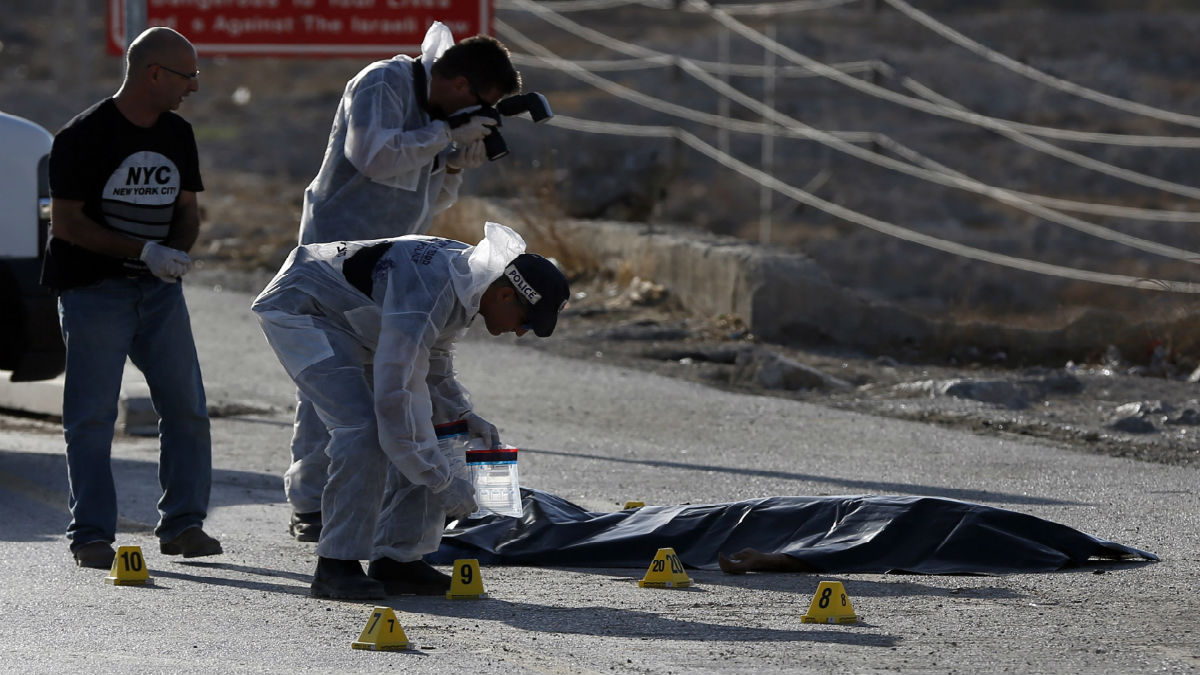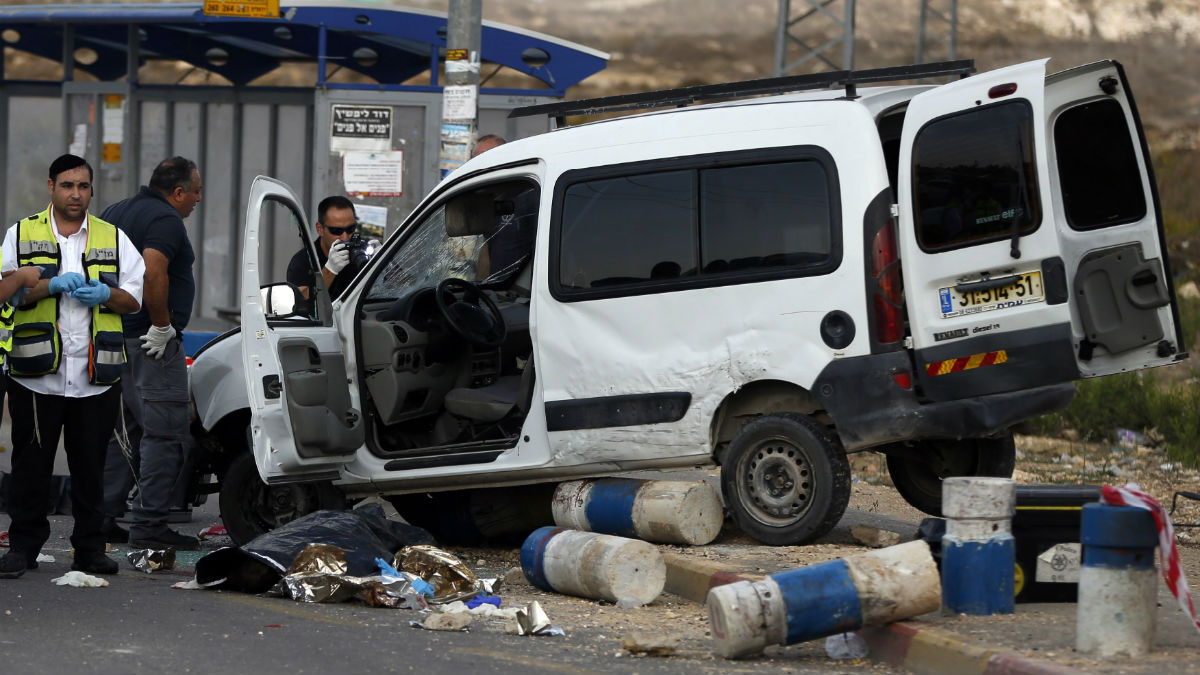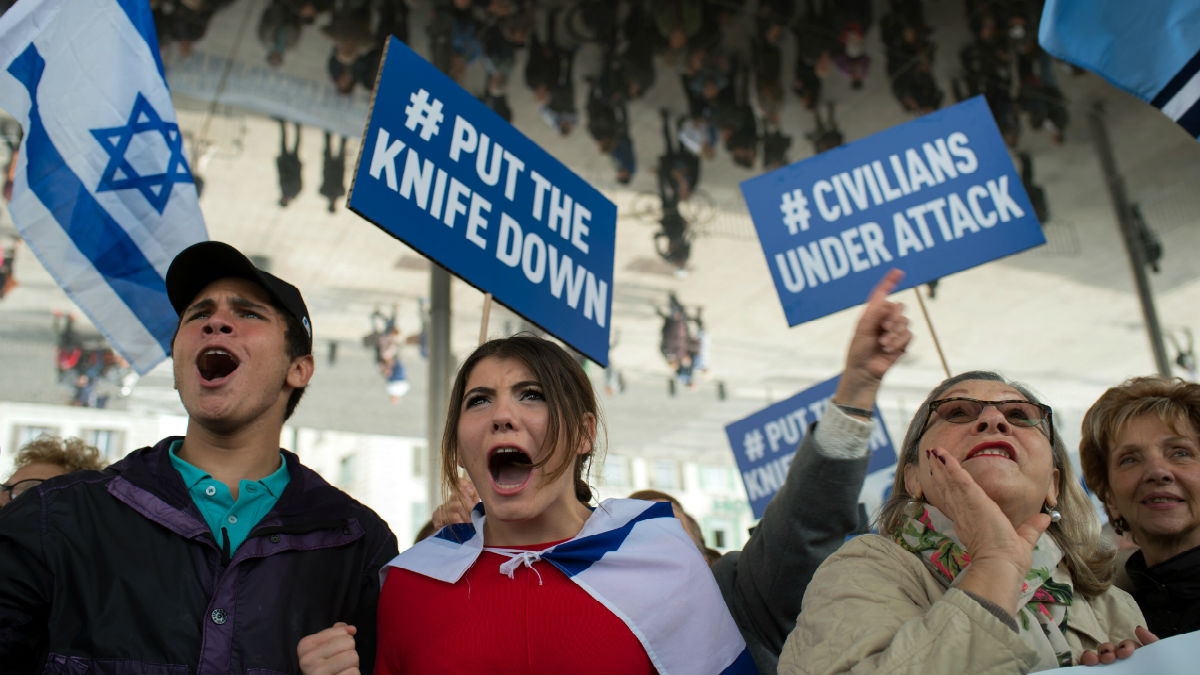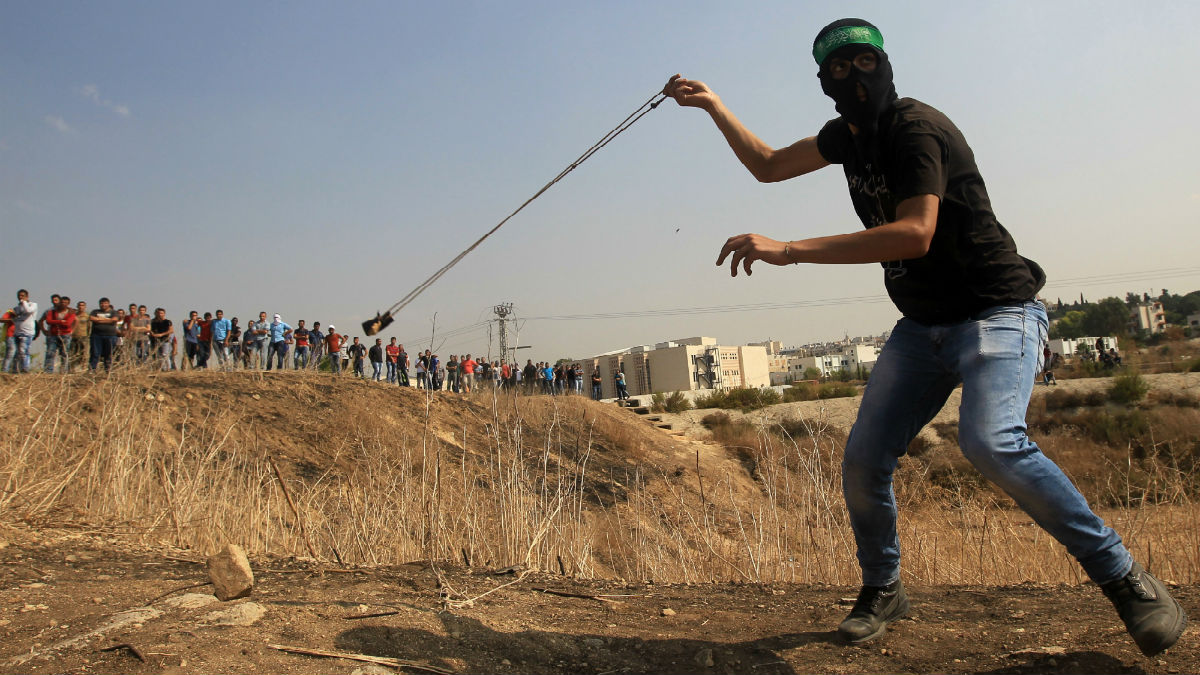Violence in Israel: what is behind the recent spate of attacks?
Some have suggested that attacks are coordinated, but most experts believe they have been largely spontaneous

A free daily email with the biggest news stories of the day – and the best features from TheWeek.com
You are now subscribed
Your newsletter sign-up was successful
The latest round of violence in Israel and Palestine, led mostly by young men without obvious political links, has prompted questions over what is driving the phenomenon and where it will lead.
Over the past six weeks, 11 Israelis have been killed as well as 69 Palestinians, 42 of whom Israel described as assailants, the rest being killed at demonstrations or after being suspected of attempting an attack.
The Week
Escape your echo chamber. Get the facts behind the news, plus analysis from multiple perspectives.

Sign up for The Week's Free Newsletters
From our morning news briefing to a weekly Good News Newsletter, get the best of The Week delivered directly to your inbox.
From our morning news briefing to a weekly Good News Newsletter, get the best of The Week delivered directly to your inbox.
Among the dozens of mostly young, unmarried attackers, the case of Alaa Abu Jamal is irregular. Abu Jama was 33-years-old and married with three kids. He had a steady job with an Israeli communications firm.
On October 13, Abu Jamal rammed his company car into a group of people at a West Jerusalem bus stop, before emerging from the vehicle with a meat cleaver and hacking a man to death. The attacker was shot by a security guard and later died of his injuries.

A week earlier, Abu Jamal's cousin Ghassan's family home was demolished by the Israeli military. Ghassan, along with his brother Oday, had brutally murdered five people at the Har Nof Synagogue in Jerusalem last November. Family members said Abu Jamal watched that early morning demolition and was involved in a confrontation with Israeli soldiers at the time.
"The Abu Jamal family have been under collective punishment since 2014," said Muawiah, 43, Abu Jamal's cousin, listing a number of penalties imposed on the family by Israeli authorities after the synagogue massacre. "What Alaa faced personally when they destroyed the house, this was part of the switch that made him do what he did."
A free daily email with the biggest news stories of the day – and the best features from TheWeek.com
The policy of home demolition is considered an effective deterrent by its supporters, but denounced as a form of collective punishment by Palestinians and human rights groups.
When the range of attackers is viewed collectively, the closest thing to a pattern is that most are under 25, have little or no history of political involvement and come from either East Jerusalem or Hebron, the biggest city in the West Bank.
Thaer Abu Ghazaleh, 19, was shot and killed in Tel Aviv on October 8 after he attempted to stab a number of Israelis with a screwdriver near a bus stop, injuring four. In a photo from the scene, the teenager is seen lying dead on the street, wearing a black t-shirt with the slogan "time heals all wounds" printed across it.
Abu Ghazaleh worked as technician in cities across Israel and the news of his attack and death shocked his friends and colleagues.
Thaer's boss said he picked up the teenager that morning with a number of colleagues at the Qalandia checkpoint near Jerusalem, before driving the group to the office in Tel Aviv.
"Everything was normal. Thaer was joking, acting normally, just like every day," said M, who did not want to be identified. He later received a phone call saying that Thaer had left the workplace and there was a commotion in the street outside.
"One of the Israelis from the same building called me and said that one of my employees was looking for Israelis and wanted to stab them, inside the company. He didn't find anyone, and then he went out," said M.

In the East Jerusalem neighbourhood, Kufr Aqab, where Thaer lived with his father, the teenager's friends recall a relaxed, happy young man who used to lift weights at the gym after work or hang out in the neighbourhood.
"We used to talk and hang out. We used to go to cafes and smoke argileh [hookah pipe]," said Radwan. "He was a cool guy, calm. Not the kind of guy making problems."
"He wanted to get married next year. He used to talk about that," chipped in another friend, Mohammed.
The wave of attacks has led some to suggest that the violence may be orchestrated by an unknown political group, but most experts believe the attacks have been spontaneous.
"We are not talking here about organised terrorism with central control," said Lior Akerman, a former division head of the Shin Bet, the Israeli intelligence service. "We are talking about individual terrorists operating without infrastructure, without guidance from a central organisation."

"The motivation of terrorists to carry out attacks comes from the success of those who preceded them," Akerman added. While there is little to link many of the attackers, it would appear that there is an element of imitation in the attacks. The weapon used has frequently been a knife, while a series of vehicular ramming attacks have also occurred in Jerusalem and then Hebron in quick succession.
Attackers were "usually motivated by frustration, despair and constant incitement by the Palestinian Authority," Akerman added.
Accusations of incitement have been traded by both sides. Islamist factions including Hamas and Islamic Jihad have undoubtedly encouraged Palestinians to carry out violent attacks, while the more taciturn chief of the Palestinian Authority, Mahmoud Abbas, has praised the attackers as martyrs. Abbas has also stressed the importance of protecting Al Aqsa mosque from what he perceives as a growing threat from the Israeli government.
For its part, the Netanyahu administration has insisted that the status quo at the site has not changed, but a number of Israeli actions have heightened tensions in recent weeks and months.
Religious Jews have visited the site in growing numbers in recent years, including fringe groups that want to see Al Aqsa mosque destroyed and replaced with a Jewish temple. On October 27, Israel's deputy foreign minister said she dreams of an Israeli flag flying at the site. Meanwhile, on October 9, Nir Barkat, mayor of Jerusalem, publicly called on Israelis with permits to carry guns everywhere around the city.
While any of these acts might have been seen as incitement, the attackers themselves rarely left many clues as to what motivated them.
Back at the Abu Jamal house in East Jerusalem, Alaa's father Daoud said his son had gone to work as usual on October 13. When asked why his son attacked the civilians at the bus stop, he shrugged. "No one can answer this. It's a mystery right now."